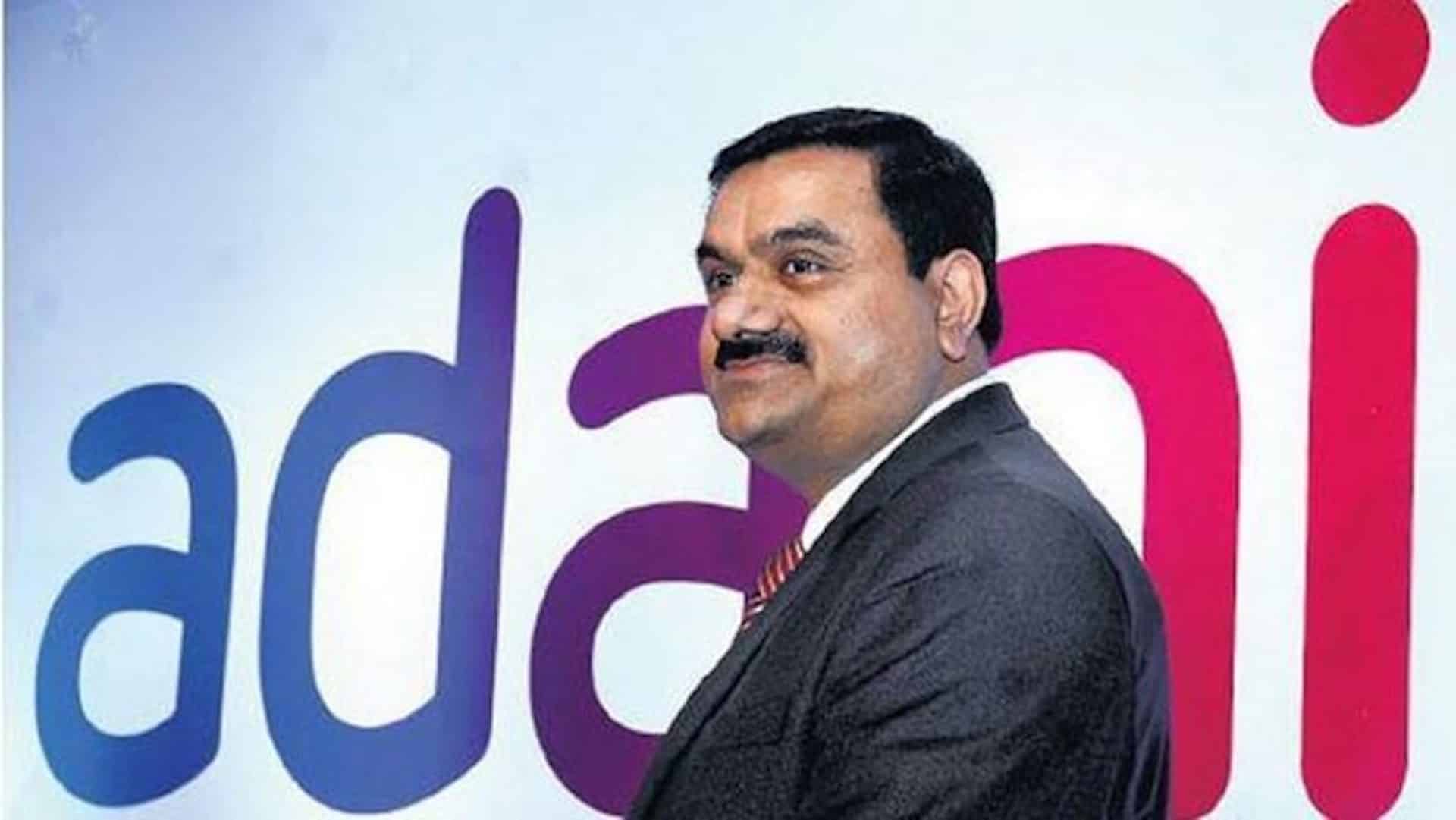Business
Hindenburg disclosure on Adani Group: Clean-up notice to all Indian companies
Few can vouch for the veracity or otherwise of Hindenburg’s research that raises serious allegations of wrongdoing against the Adani group. The present author certainly cannot. These charges could be accurate to varying degrees but that does not put Gautam Adani in the company of fly-by-night operators or the likes of arms brokers and others who profit purely from government patronage. Adani is a first-generation entrepreneur who has dreamed big, executed with excellence and has built chunks of the Indian economy’s essential infrastructure, whether ports, power plants, grain storage or renewable energy.
But serious charges have been made and these must be investigated, and misconduct penalized. This is essential for the credibility of the India story in the eyes of global investors. And the India story is bigger than any one company.
Without going into the specifics of Hindenburg’s allegations against the Adani group, it is safe to say that if the cupboards in the backrooms of other Indian companies were opened with the zeal brought to bear on Adani by Hindenburg, companies that make artificial skeletons for medical students to gawk at would go out of business — such would be the supply of real skeletons, albeit ugly specimens.
Anatomy of corruption
Indians are proud of their democracy. But rare is the Indian who donates to political parties. Political parties mobilise the funds they need through extra-institutional means. The little boy who made out the fabric of the Emperor’s new clothes would call such extra-institutional means corruption.
Some are born corrupt. Some grow corrupt. And some have corruption thrust upon them. All these origin stories apply to Indian business at the same time. Angel investors complain that even start-ups, which get money to burn and expect founders and chief executives to make themselves rich, but in legitimate ways, are not immune to the tendency for company founders and leaders to steal from the company.
Being born corrupt and growing corrupt are easy to comprehend. But what does having corruption thrust upon someone mean? Businesses fund politics; however, not by making formal donations, whether by cheque or through electoral bonds. The money mobilised through formal means is only a fraction of the actual requirement of politics as practised in India.
If you have to buy up a couple of dozen MLAs to topple an incumbent government and form a new one, and do not have more than half a dozen ministerial positions to offer, you have to pay the MLAs a tidy sum, each. You might also need to fly them and their hangers on to a fancy resort in a distant state. This money cannot come from accounted receipts, whether open donations or opaque electoral bonds. Nor the money used to buy booze (occasionally drugs) for voters who see no reason to part with their goodwill and votes for nothing. Rallies are big, in most cases, because the crowd is mobilised, paid for at rates varying from a packed lunch to ₹1,500 per head. You can’t show that in your accounts.
Compromised political system
Newspaper ads are easily audited, and parties could be asked to show the source of such spending. But posters, bunting, vehicles hired or purchased for campaigning, paying off journalists, administrators and rebellious rival party leaders in a position to sabotage their own side, making generous payments to one’s own supporters and henchmen and all skullduggery deemed par for the course, including scurrilous social media campaigns against political opponents, can be, and often are, financed with money sourced through contributions off the books of both the donor and the recipient.
So, businessmen have to generate and stash away cash off the books, in order to give politicians unaccounted funds to spend on unaccountable things. Politicians create war chests for assorted contingencies. The relatively honest use these funds only for political purposes, the more unscrupulous ones use them to build personal fortunes.
Politicians, especially when they are in power, extract money by looting the exchequer — contractors would kick back a proportion of the inflated project or procurement cost borne by public funds — sale of patronage and plain extortion.
Businessmen have more means to make unaccounted money than lesser mortals can imagine. When banks give project loans, costs are inflated, the padding taken out during project implementation. When companies are acquired, a portion of the acquisition cost, borne by the acquiring company, comes back to its promoter, often in an offshore account. Shell companies set up by the promoter pump up the value of the company’s shares, the high-value shares are pledged with banks to raise loans that would have been much smaller if the share price had not been boosted.
The promoter sells some of his shares at the inflated price, and buys some back later, when the price has come back to terra firma. The company buys assorted goods and services, some essential, some not, from companies set up by the promoter or his agents, and transfer the company’s funds to the promoter through related party transactions. Over- and under-invoicing of cross-border trade allows the promoter, with the cooperation of willing counterparties stationed abroad, to take money out the company.
Why is such flagrant misconduct not stamped out? Because the political system is fundamentally compromised. So long as citizens do not develop a democratic sensibility, fund democracy with voluntary contributions at scale, stop tolerating defections and start rejecting parties that induce defections, stop selling their own votes for liquor and cash handouts, this state of affairs will continue.
Electoral bonds a sham
What of electoral bonds? Don’t they allow companies to fund politics with money they show on their books?
Electoral bonds are a sham. Sure, they let companies fund parties with money on their books, but such contributions are good enough only to finance legitimate activities, whereas a large share of political activity is underhand and call for financing that cannot be disclosed. Further, electoral bonds create opacity, preventing the voter from knowing who funds which politician. The bank that issues the bonds, State Bank of India, knows which company bought which bond with what serial number and which party redeemed that bond. The government that appoints the bank chairman also gets to know who contributed how much to which party through bonds. Since businessmen are smart enough to figure this out, they keep their funding via bonds to a minimum, just enough to go along with the government’s pretence of ridding politics of black money.
Does the fact that corruption is systemic in India justify corruption on the part of individual companies? Clearly not. Satyam Computer’s Ramalinga Raju claimed to have profits he did not have, and even paid tax on them, in order to boost his share price, so that he could raise large loans pledging those inflated shares. He got caught and paid the price.
Chicken and egg problem
But can a company remain chastely clean when it necessarily has muck all around it? Will the system be corrupt if individual elements stopped being corrupt? The way to resolve this chicken and egg problem is to eat chicken biryani topped with a boiled egg: the chicken and the egg must both be cooked. To do that, the first step is to clean up political funding. Politicians who gain office on the strength of popularity and voluntary contributions from the people would be beholden to no corporate interest, and reach for the biryani rice.
Let us also accept that the democratic content of polities evolve, as also the level of intimacy between business and politics. The Robber Barons who built the Industrial and financial muscle of the United States were heroes of their time. American politics was steeped in corruption till campaign reform gradually tightened in the later decades of the 20th century. Japan’s Zaibatsu and Korean Chaebols, both business conglomerates that enjoyed tremendous state patronage, funded politicians. Samsung’s boss has just been pardoned, after being imprisoned for bribing a previous president of South Korea. Xi Jinping’s anti-corruption drive shows how extensive corruption was and is in China. Goldman Sachs colluded in Malaysia’s 1MDB scam. McKinsey was part of the problem in Jacob Zuma’s South Africa. Enron and its books cooked with the help of Arthur Andersen occurred in the US at the turn of the century, Elizabeth Holmes and her Theranos fraud took place in modern start-up wonderland.
Corruption is present in everything, everywhere, all at once. It must be fought back. That is a function of institutional integrity and capacity. These evolve, with the help of state action and public pressure. In India, the state itself is compromised, thanks to our system of political funding.
The very same companies that have grown big with the help of political patronage are best placed to appreciate the need for reform. They need legitimacy not just among adoring fanboys back home but among global business partners, financiers, analysts and investors. They could take the lead in cleaning up India’s political funding.
So could political entrepreneurs in India, both outsiders to politics and those within parties. Middle-class outrage helps, but not the finger-pointing kind that refuses to look inwards, bucks the need to create a democratic sensibility among the people as the primary trigger for change.
May the Hindenburg report kick off new demand for chicken biryani in India!
(his article was originally published in The Federal. The Federal seeks to present views and opinions from all sides of the spectrum. The information, ideas or opinions in the articles are of the author and do not necessarily reflect the views of The Federal)
Disclaimer: The views and opinions expressed in this article are those of the authors and do not necessarily reflect the official policy or position of the publication













































Pingback: Adani confident of FPO sailing through; SEBI, other regulatory bodies probing sell-off